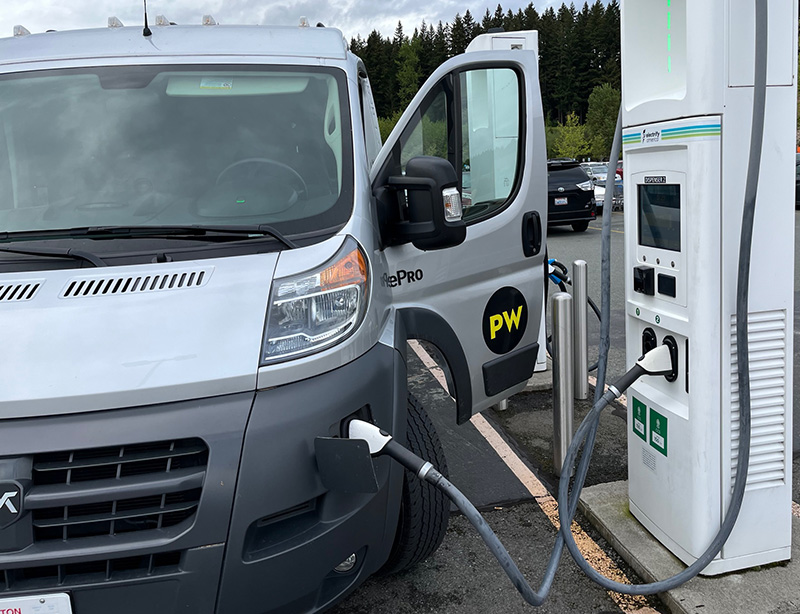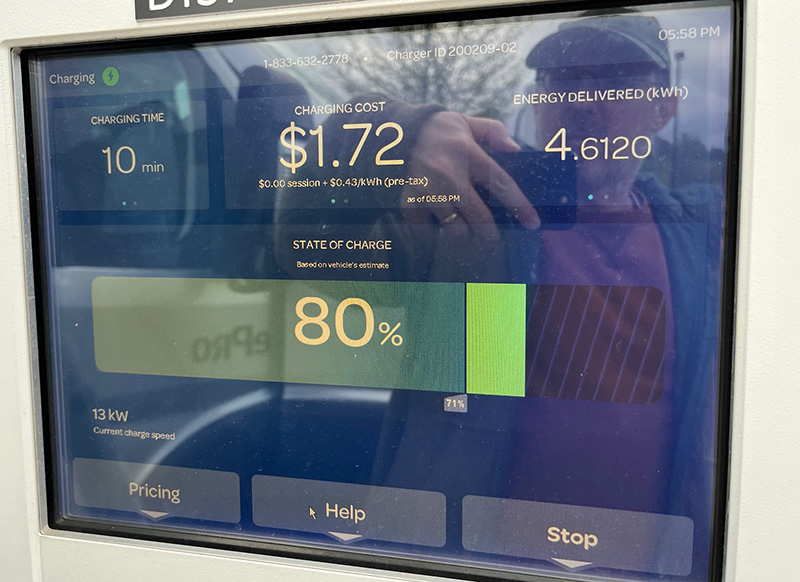
While the news is full of stories of the transition to electric cars, soon to be added into that transition is camper vans, as that is now just possible too, and you don’t even need to buy one. The challenge is that camper vans are much heavier than cars, less aerodynamic, and thus need more power to move about. That, plus campers are intended to go out into the wild, away from civilization and thus away from the recharging networks.
Despite these challenges, electric (van) camping is now technologically possible. I know this first hand, as I just did it myself. My family rented an e-Tofino from Pacwesty to test it out.

It did take a little bit of planning. The destination was one of three, based on the weather, all within 150 miles of downtown Seattle, not because of the distance the van could drive on a charge, but simply because this was a long weekend outing, not a week or a month. The best weather was up in the Cascades, in Central Washington, at Lake Wenatchee. Above is the route, below is that route within the Washington State.
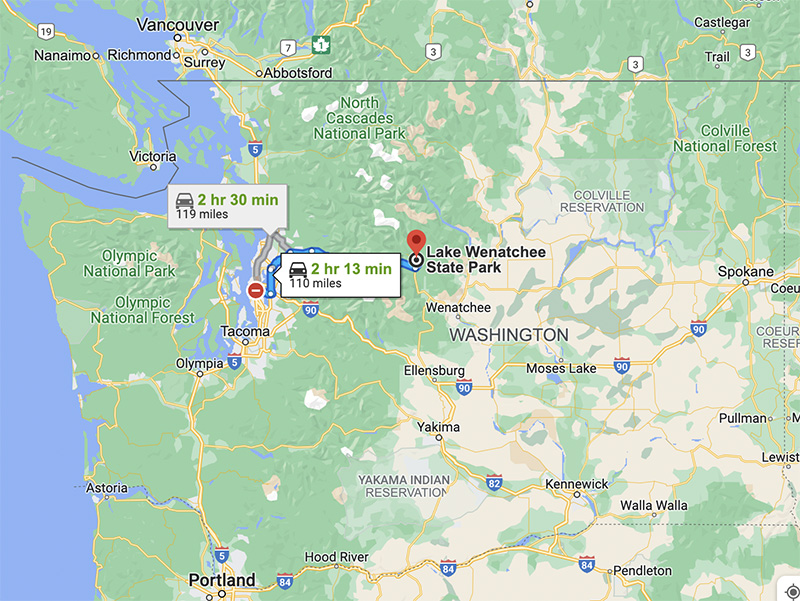
Nominally, our van’s range was 120 miles between charges. But as there is a mountain pass in the chosen route, we knew the actual range would be shorter. Thus step one of the plan was to find a fast charger somewhere along the way, and Electrify America has one of those in Monroe. That was about 30 miles from Seattle, 90 miles from Lake Wenatchee.
The battery was at 71% upon arrival, showing that perhaps the actual range is closer to 105 miles than 120. 10 minutes and just $1.72 later, the battery was back to 80%. The gas stations within site of the charging were charging almost $5.00/gallon. Camper vans tend toward 15ish miles per gallon. On a previous outing in a gas-powered camper van, we filled up three times at $50 per tank. On this trip we “filled up” just twice, for a total of $4.73.
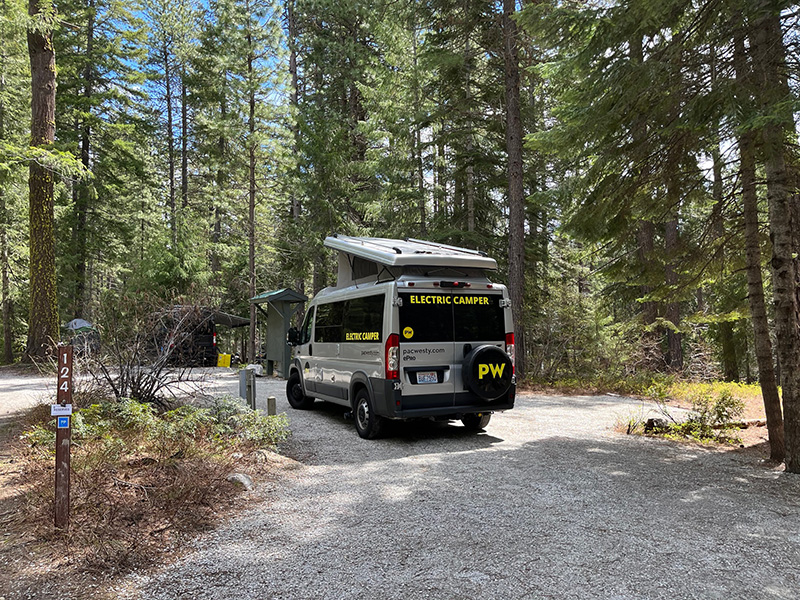
Beyond the charging, driving the electric van is the same as driving any other van, except that it’s a lot quieter. This particular van was an electric conversion of a stock Pleasure-Way Tofino built on a Dodge ProMaster chassis. I don’t know the motor specs, but it’s not over-powered like most electric cars and thus didn’t have the fast acceleration I’m used to from my electric car, but it did have the same smooth and seamless, linear acceleration one gets used to driving electric.
Inside was unchanged from the stock Tofino, which is already well known for having a “house” battery capable of running the refrigerator and induction cookstove and all the lighting for a week between charges. In terms of camper van lifestyle, the Tofino a 21st Century Volkwagen T2/T3/Eurovan pop-top “Westy,” which is what my family is used to.
We spent a few days up in the mountains, taking day trips from the campsite to the National Forest and other hikes. The longest of these was 60 miles round trip, and we returned that day with almost “half a tank of electrons” as I like to say.
How did we do that without a faster charger around? Simple. We stayed at a campsite with an electric outlet for an RV, paying an extra $5 per night for that utility. We plugged the charging cable into that outlet, and as long as it was there, plugged in the house battery too.
Or in other words, we arrived at the campground nearly on empty, took five minutes to find the cables and plug them in, and went to sleep. By morning the van was fully recharged. The same each day after our day trips. Which also meant we started the return trip at 100% charge, and probably could have made it back the whole 120 miles without recharging, as the van recharges itself as it drives downhill by 2,000 feet.
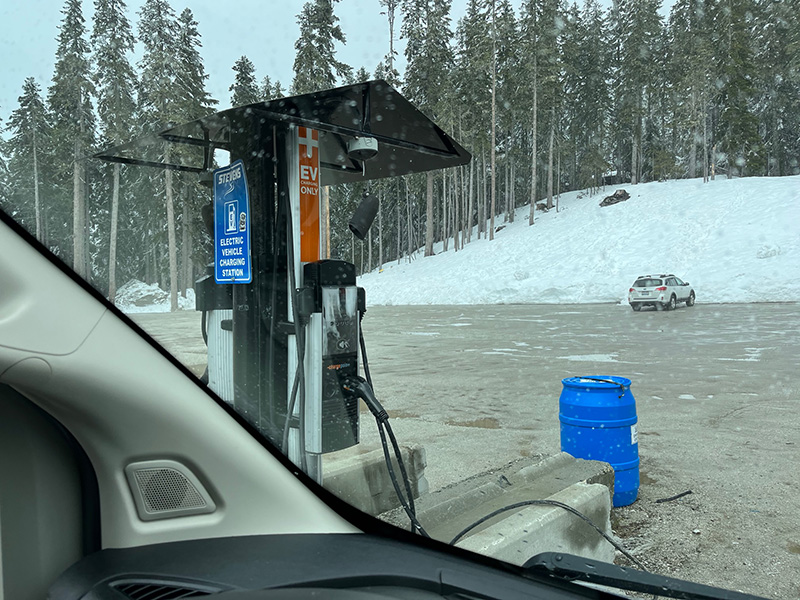
But on the way back it was snowing in Steven’s Pass. My daughter likes snow and we happened to notice a sight saying there was a EV charger in Lot G. Turns out it was free. It’s not a fast charger, but we “topped off the tank” for 15 minutes to test it out.
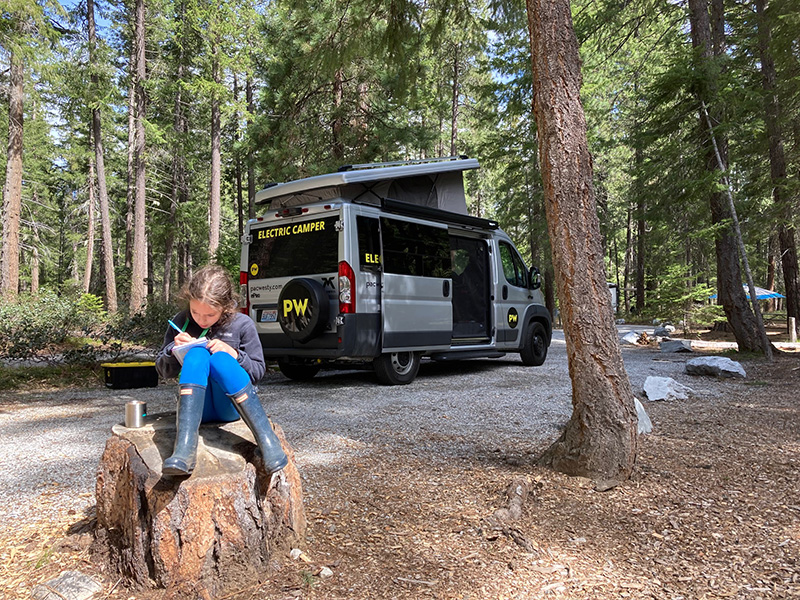
Given there are no electric camper vans for sale, given so few stories of electric camper vans in the news, and given the bright yellow all caps ELECTRIC CAMPER on three sides of the van, we got quite a lot of questions over the weekend, especially from the “neighbors” at the campground with their own ProMaster camper conversions.
TL;DR: electric camper vans are real, are possible, and just as fun as their age-old gas guzzling brethren. Pacwesty, we’ll be renting this one again.

